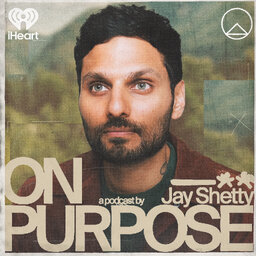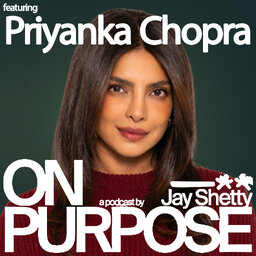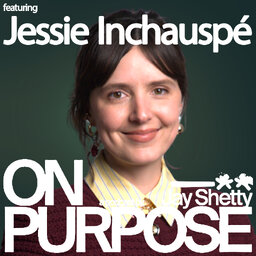Jelly Roll: 5 Powerful Ways to Overcome Guilt and Shame & How to Finally Forgive Yourself
Have you ever struggled with guilt or shame?
Why do you think self-forgiveness is so hard?
Today, Jay sits down with the incredibly talented and resilient Jelly Roll, a Grammy-nominated Nashville native who has captured hearts with his raw, soulful music. Rising from a troubled past marked by addiction, incarceration, and personal struggles, Jelly Roll has turned his life around through music, earning widespread acclaim for his deeply emotional lyrics and raw storytelling. With a top-three debut on the Billboard 200 and multiple awards to his name, His music resonates with those facing hardship, offering a message of hope, redemption, and healing.
Jelly Roll shares his powerful journey from a turbulent past—marked by addiction, incarceration, and emotional struggles—to becoming one of the most celebrated figures in country music today. Together, they explore topics like the impact of childhood trauma, battling demons, overcoming addiction, and the importance of love and healing in personal transformation.
Jelly Roll opens up about his rise to success, reflecting on how music has been a healing force not only for him but for the countless fans who resonate with his lyrics. From finding solace in Jay Shetty’s book Think Like a Monk during a dark time in his life to creating music that speaks directly to those who feel unseen, Jelly Roll's story is one of redemption, hope, and purpose.
In this interview, you'll learn
How to find purpose in your struggles
How to forgive yourself for past mistakes
How to overcome addiction through accountability
How to turn negative experiences into positive impact
How to create emotional resilience in tough times
How to find peace in moments of darkness
No matter where you are right now, it’s never too late to rewrite your story and create a life filled with meaning and growth. Keep pushing forward, and believe in your ability to rise.
With Love and Gratitude,
Jay Shetty
What We Discuss:
00:00 Intro
04:24 Rediscovering Purpose After Struggles
07:26 Coping with the Loss of a Father
10:34 How His Mother Sparked His Musical Journey
14:48 The Impact of Deep-Rooted Insecurities
17:25 Embracing Accountability for Personal Growth
19:51 The Barriers to Self-Forgiveness
21:08 Reflections on His Fifteen-Year-Old Self
24:26 Life Behind Bars as a Juvenile
28:47 The Fine Line Between Accountability and Self-Sabotage
32:56 Developing Emotional Awareness and Growth
37:21 The Reality of Food Addiction
40:34 Breaking the Chains of Addiction
42:22 Finding Someone Who Sees Your True Worth
49:45 Why Asking for Help Shows Strength, Not Weakness
54:12 Bringing Hope and Uplifting Spirits Through Prison Performances
01:02:13 Addressing Drug Addiction in His Congressional Speech
01:08:50 Understanding the True Victims of Drug Abuse
01:11:31 Breaking Free from Generational Curses
01:18:23 The Profound Impact of Music on His Life
01:25:57 Healing the Inner Child Through Faith
01:31:14 A Heartfelt Letter from His Brother
01:35:36 Fast Five with Jelly Roll
Episode Resources:
Jelly Roll | Website
Jelly Roll | Instagram
Jelly Roll | Facebook
Jelly Roll | YouTube
Jelly Roll | TikTok
In 1 playlist(s)
On Purpose with Jay Shetty
My name is Jay Shetty, and my purpose is to make wisdom go viral. I’m fortunate to have fascinating …Social links
Follow podcast
Recent clips

Don't Waste Your Life (Use THIS Daily Shift To Build a Life That ACTUALLY Feels Meaningful)
21:42

PRIYANKA CHOPRA JONAS: Fame, Motherhood, Love and the Moment That Changed Everything
1:49:49

Jessie Inchauspé: 90% of Pregnant People Are Missing THIS Nutrient (Follow THIS Simple Diet To Reduce Glucose Spikes & Protect Your Baby’s Brain & Metabolism)
1:12:12
 On Purpose with Jay Shetty
On Purpose with Jay Shetty